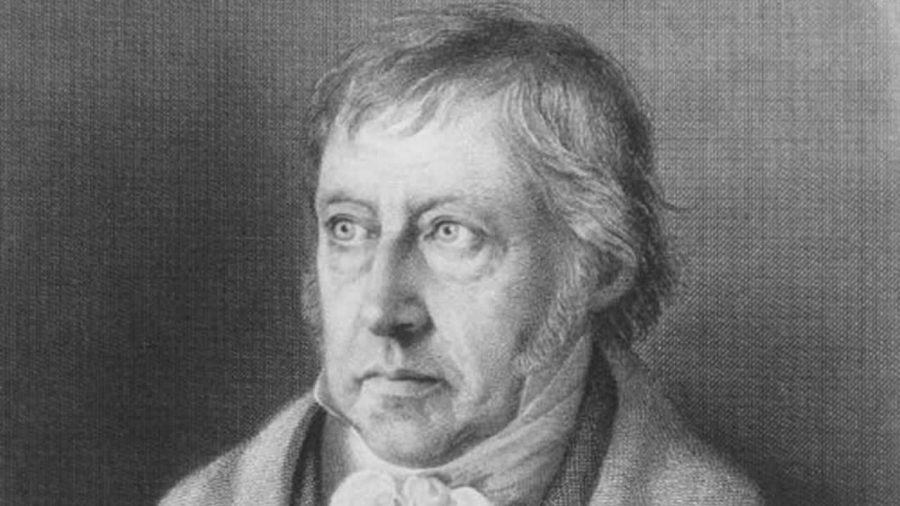Hegel had many thoughts on idealism, and many strong points to support his theory. Not everybody agreed with his theories however, and created their own to argue what he said. Hegel basically “opened a can of worms” with his intense beliefs, which caused many “anti-idealism” philosophers to answer him with their own points, and responses. These disagreements, or responses to Hegel’s theory, is what created the path to existentialism and phenomenology in continental philosophy.
First, existentialism was developed as a response to Hegelian idealism. Existentialism was a very pessimistic way of philosophy which included principles such as philosophy being separate from real life, the world being irrational and absurd with no explanation available, and problems can not be solved. Soren Kierkegaard, and Friedrich Nietzsche were two men who introduced some of these themes to counteract Hegel’s theories; they were philosophers and key contributors to existentialism.
Soren Kierkegaard’s theories focused on each individual, stating that it is their decision to make choices that will lead them to ultimate despair. Kierkegaard believed the world is full of suffering, dread, irrationality, and despair, and these things are inevitable to people. Additionally, Friedrich Nietzsche, another philosopher believed the world is driven by cosmic will. Nietzsche believed in the will-to-power, and the “Superman”, who was the only being that would have a happy life and escape the dread of the world. Furthermore, Nietzsche also felt that the world was in a slave state of mind, because people were controlled by fear, vengeance, and other negative elements. Lastly, Nietzsche believed there are no facts, things are made up of what people interpret them to be, and that which happens will eventually reoccur. These were some of the themes created to counteract Hegel’s ideas, and the theories of these two men, along with Schopenhauer, spread throughout the world.
Moreover, existentialism was a new theory brought about, and people welcomed it. Two men, Albert Camus and John-Paul Sartre were existentialists who wrote about their thoughts because they wanted to have an influence amongst people and share their ideas with the world.
First, Albert Camus believed that the world was absurd and humans were not able to meet human needs no matter what they did. Camus believed that people lied to themselves by being optimistic (which was a false concept), so they would not see the true cruelty behind the world. According to Camus, humans have two basic needs, the need to understand, and the need for contact. The first need however, could never be met because there is no reason for anything in the world therefore there is no way to understand anything. The second need could not be met because Camus felt people lied to each other and themselves making everyone strangers were strangers, even themselves.
Then, John-Paul Sartre, another existentialist, had the theory that man is abandoned, and there is no God (which causes implications). One implication is that since there is no god, each individual is to create their own spirit and soul. Another implication is without a God there is no real reason for existence. Next, since there is no God, “man is free”. Finally, the problem with having no God is that there are no standards, morals, good or bad, or proper ethics.
Next, another development caused by the response to Hegel’s theory was Phenomenology. Phenomenology has to do with the mind and believing in conscious experiences and using those for philosophical explanations. Phenomenology has had a huge impact on several subjects and came about through the works of Edmund Husserl, Immanuel Kant, and Georg Hegel. Phenomena is not the real world or the tings that are in the real world, but the experience of thinking about things in the real world. Phenomena is about the mind and conscious experiences, which Edmund Husserl, a contributor to phenomenology, believed everybody had, and believed material things exist because of experience and thought. Martin Heidegger, another contributor and phenomenologist, believed that being was certainty, not experience as Husserl said. Emmanuel Levinas was the son of a man who owned a bookstore, so he read a lot. He found a deep interest in literature and studied in Germany before his parents were killed and he was taken to Nazi prison camp. Levinas studied Husserl and Heidegger in much depth, and is responsible for spreading phenomenology to France.
Hegel’s theories not only influenced philosophy, but studies of other subject such as science, psychology, mathematics, and religion. The responses to Hegel’s theory of idealism, created these responses which were passed throughout countries, and spread to become their own categories of existentialism and phenomenology. Some of the key contributors of these developments included Soren Kierkegaard, Friedrich Nietzsche, Albert Camus, John-Paul Sartre, Edmund Husserl, and Emmanuel Levinas. Existentialism held the principles of individuals making their own decisions in the cruel world where they are bound to meet with despair and phenomenology holds the beliefs of being and ones own mind. These both contradict Hegel’s theories and this is why they were developed.

















